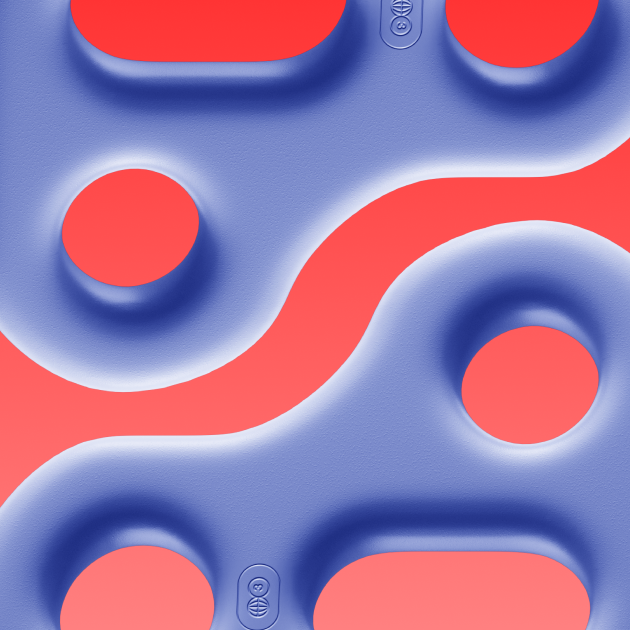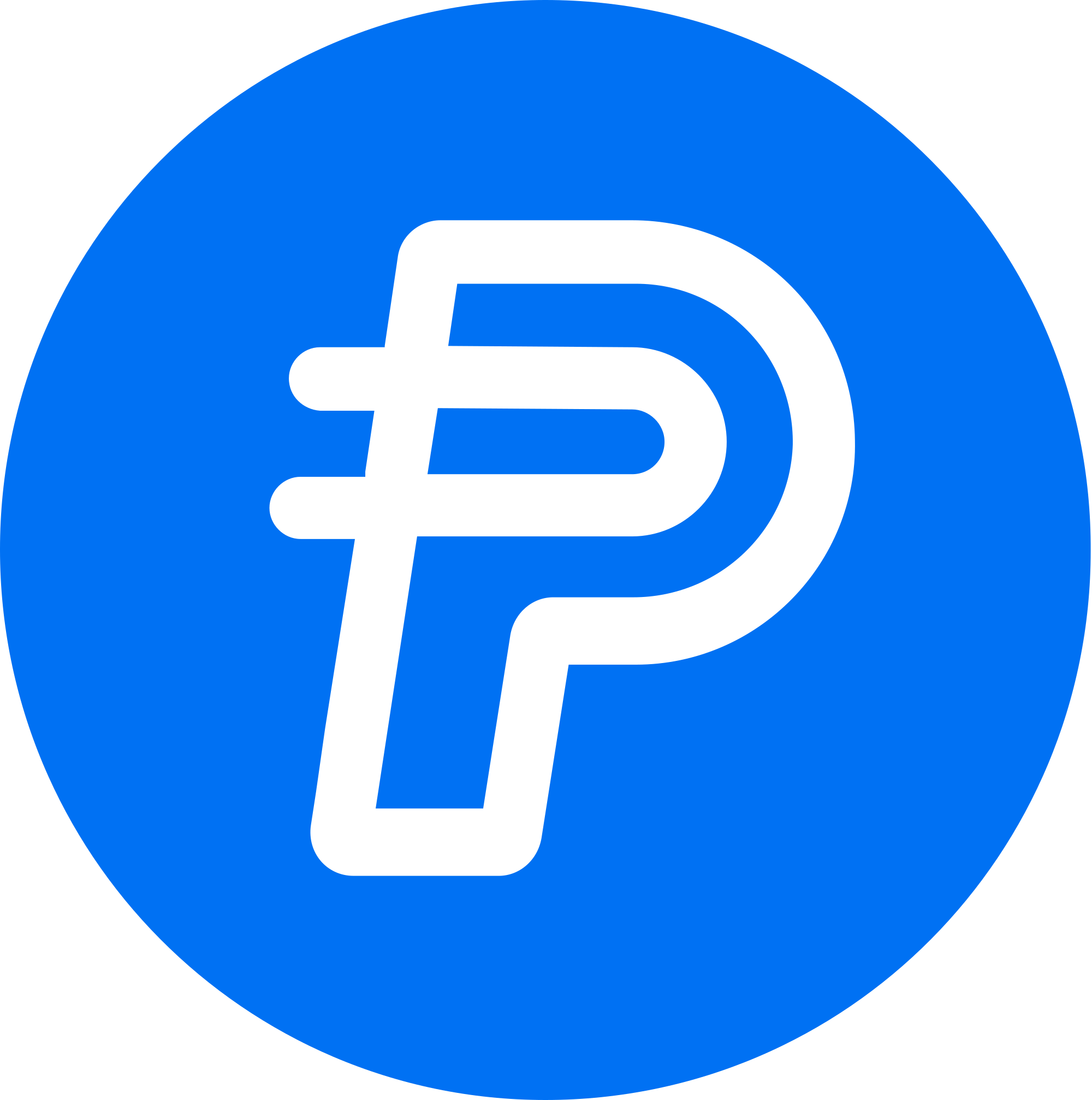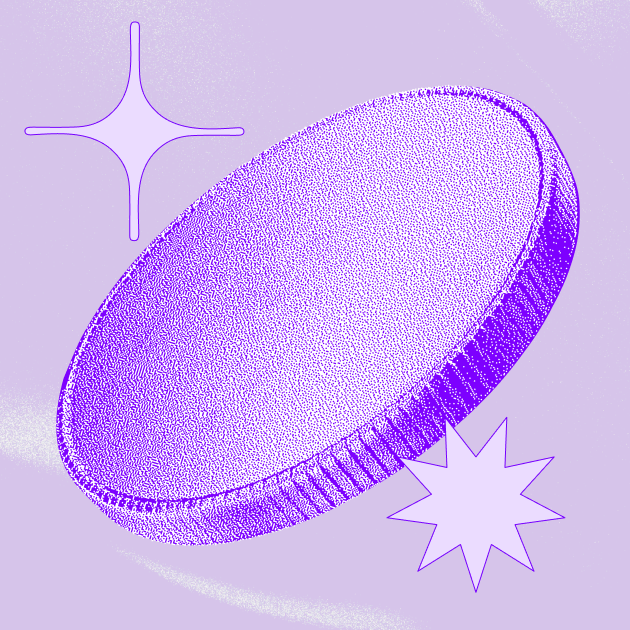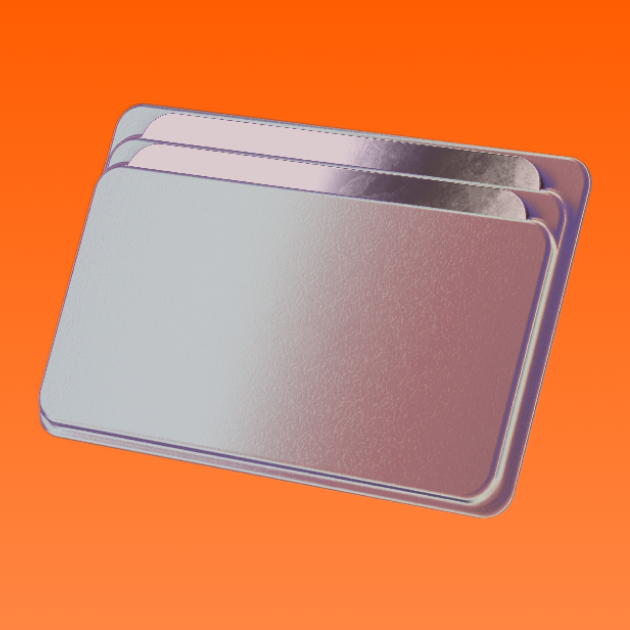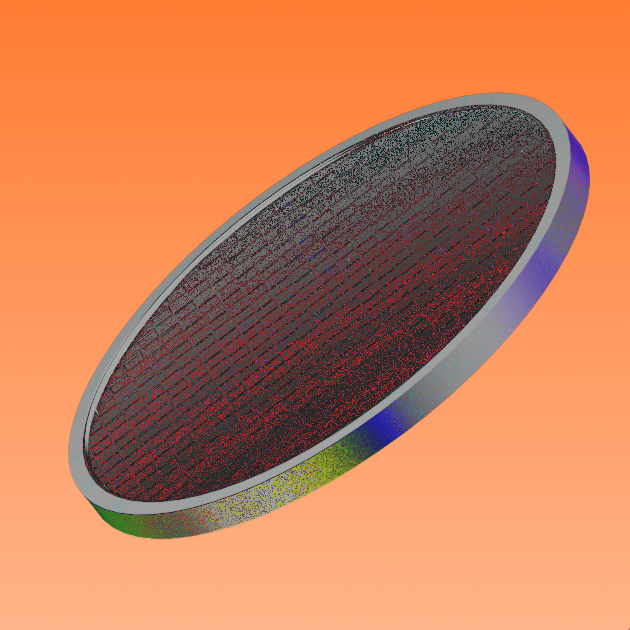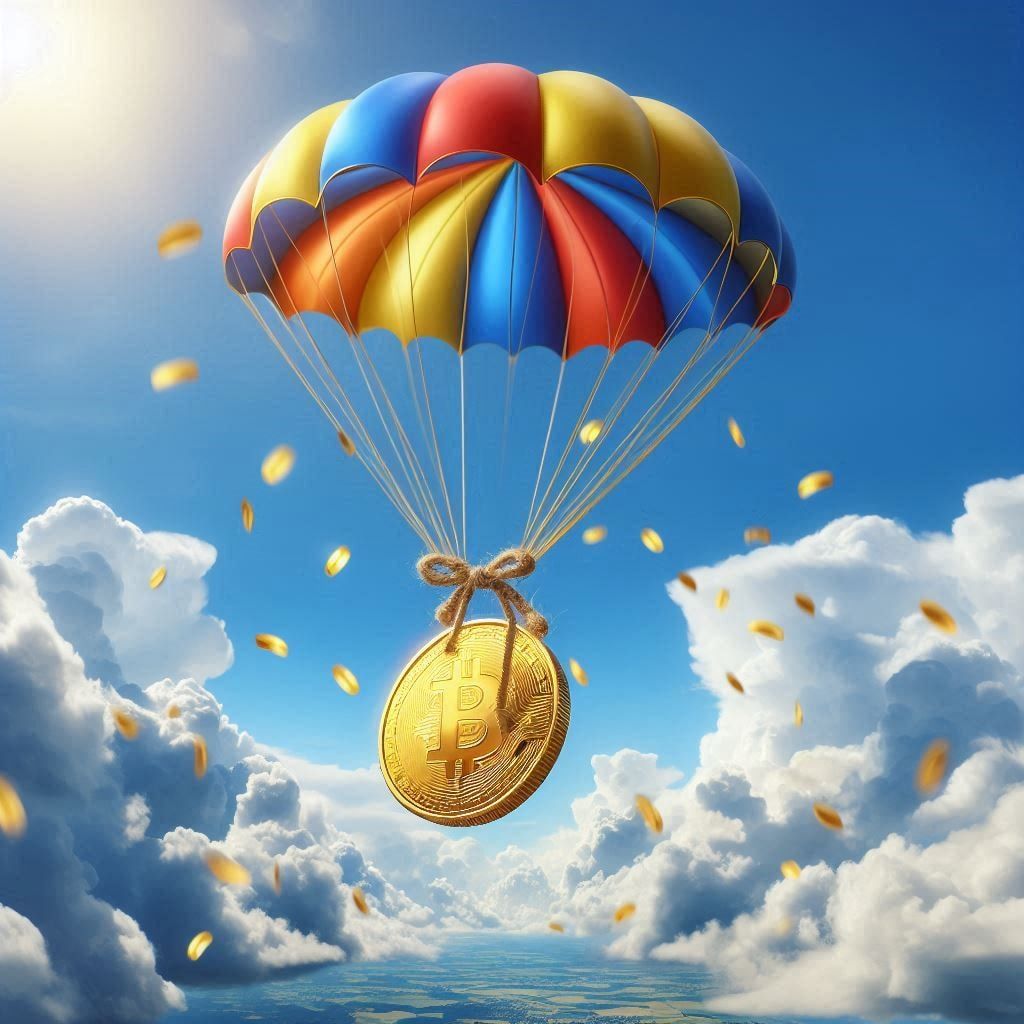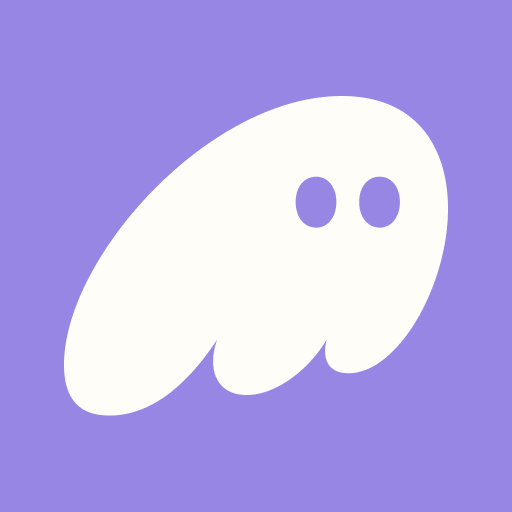Geoffrey Lyons also contributed to this article.
Non-fungible tokens (NFTs) are becoming increasingly popular for a wide variety of use cases. For example, some purchase NFTs to own a piece of collectible art or be a part of an interesting community.
But with so many NFT collections going live every day, navigating the world of NFTs can be overwhelming. That's where a list of NFT tools can help you.
This article dives into the latest NFT tools and platforms that you can use to research NFTs and smoothly traverse this crowded space.
What are NFTs and what makes them useful?
Non-fungible tokens or NFTs are blockchain-based tokens that represent unique digital or physical assets, such as digital art, music, and real estate. Since NFTs have unique identities on the blockchain, they are not interchangeable with other NFTs.
The utility of NFTs can be boiled down to roughly three characteristics:
1. NFTs prove ownership
The ownership record and history of an NFT are published on the blockchain. That makes it nearly impossible for anyone to create fakes and claim them to be real.
This ability to prove ownership can be beneficial across music, art, real estate, and many other industries.
2. NFTs can create scarcity
Scarcity can help create value. NFTs can create digital scarcity where none formerly existed.
Beyond the scarcity of any given NFT, creators can also set the supply limit for whatever it is they wish to list. They can make some NFTs more scarce than others, and even some NFT traits more scarce than other traits within an NFT collection.
3. NFTs require no intermediaries
Since they’re based in a decentralized ecosystem, NFT sales do not necessarily need middlemen apart from a platform on which the NFTs are traded. This means collectors and creators can participate in a system where the latter receives a fairer portion of proceeds for their work—a hallmark of Web3.
For a more detailed description of Web3, see our article What is Web3?
NFT marketplaces
OpenSea
OpenSea is the world’s largest NFT marketplace that hosts the most popular NFT collections across multiple blockchains. The platform has an average daily trading volume of over $4 million. Its user-friendly interface has made it the go-to platform for people starting their NFT journey.
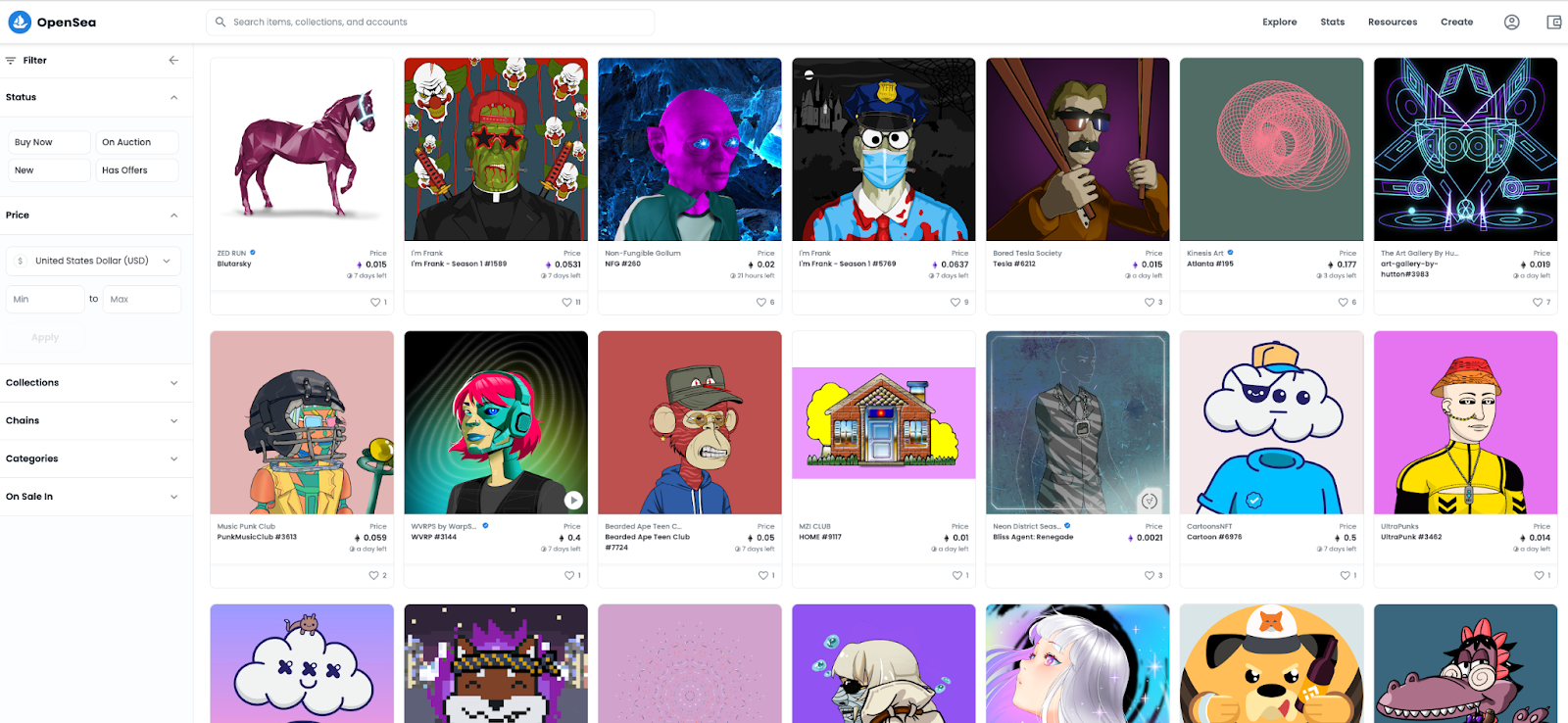
To buy or sell NFTs on OpenSea, you will need an Ethereum wallet. OpenSea recommends Metamask, but you can also get started with others such as Coinbase, Fortmatic, Dapper, Torus, and more via Wallet Connect.
While the platform is free to use, there’s a 2.5% service fee on all NFT trades. OpenSea is also integrated with MoonPay, allowing you to purchase NFTs using your debit/credit cards.
Rarible
Rarible is another popular NFT marketplace where you can sign up for free using an Ethereum wallet.
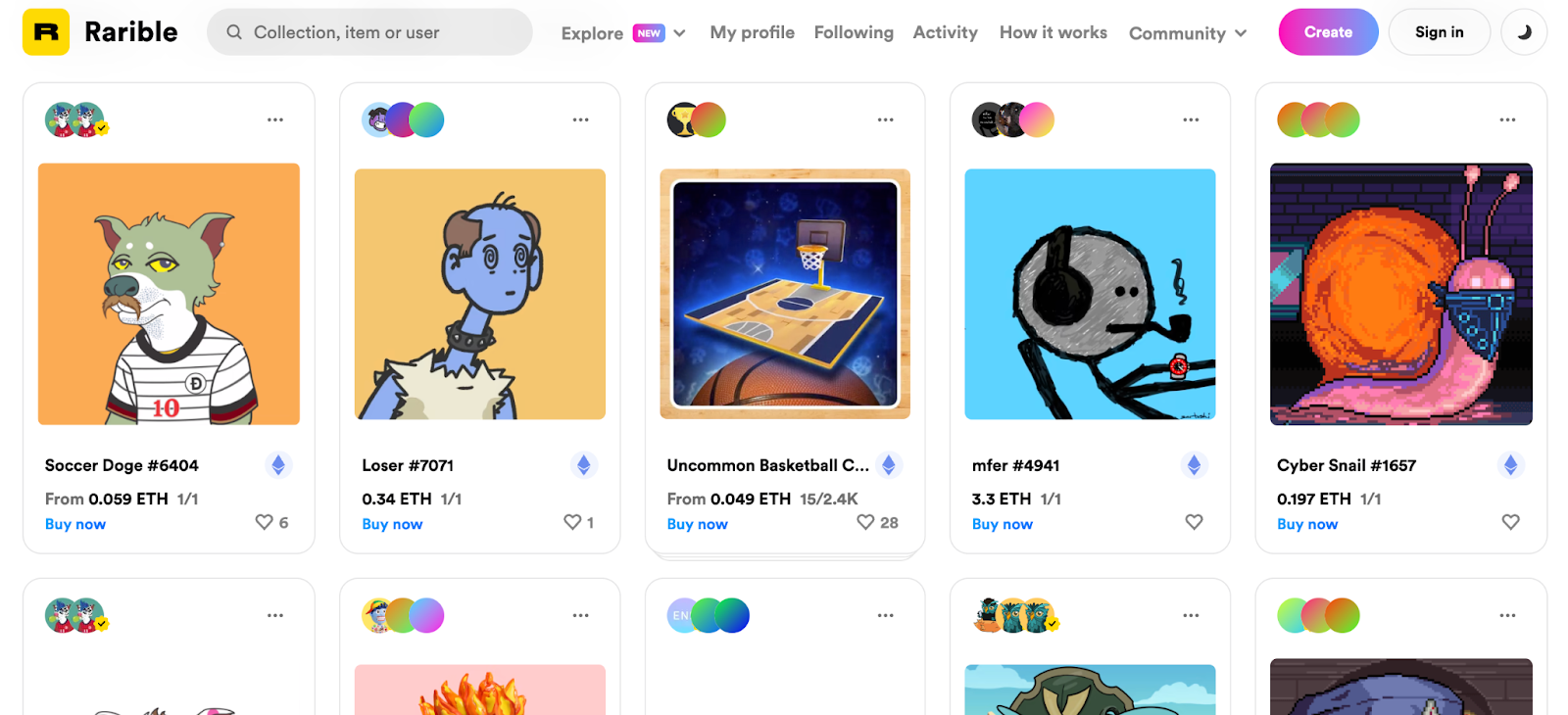
Unlike OpenSea, items on Rarible are minted as soon as they are listed. This may take some time (and cost some ETH gas) for the seller, but the buyer can rest assured that when they buy their desired NFT, it will have already gone through the minting process.
The platform charges the seller and buyer a 1% fee on every NFT trade.
LooksRare
LooksRare is a fairly new NFT marketplace but it has become one of OpenSea’s top competitors. In fact, it poached OpenSea users by airdropping its native $LOOKS token to those who have transacted 3 ETH or more on OpenSea.
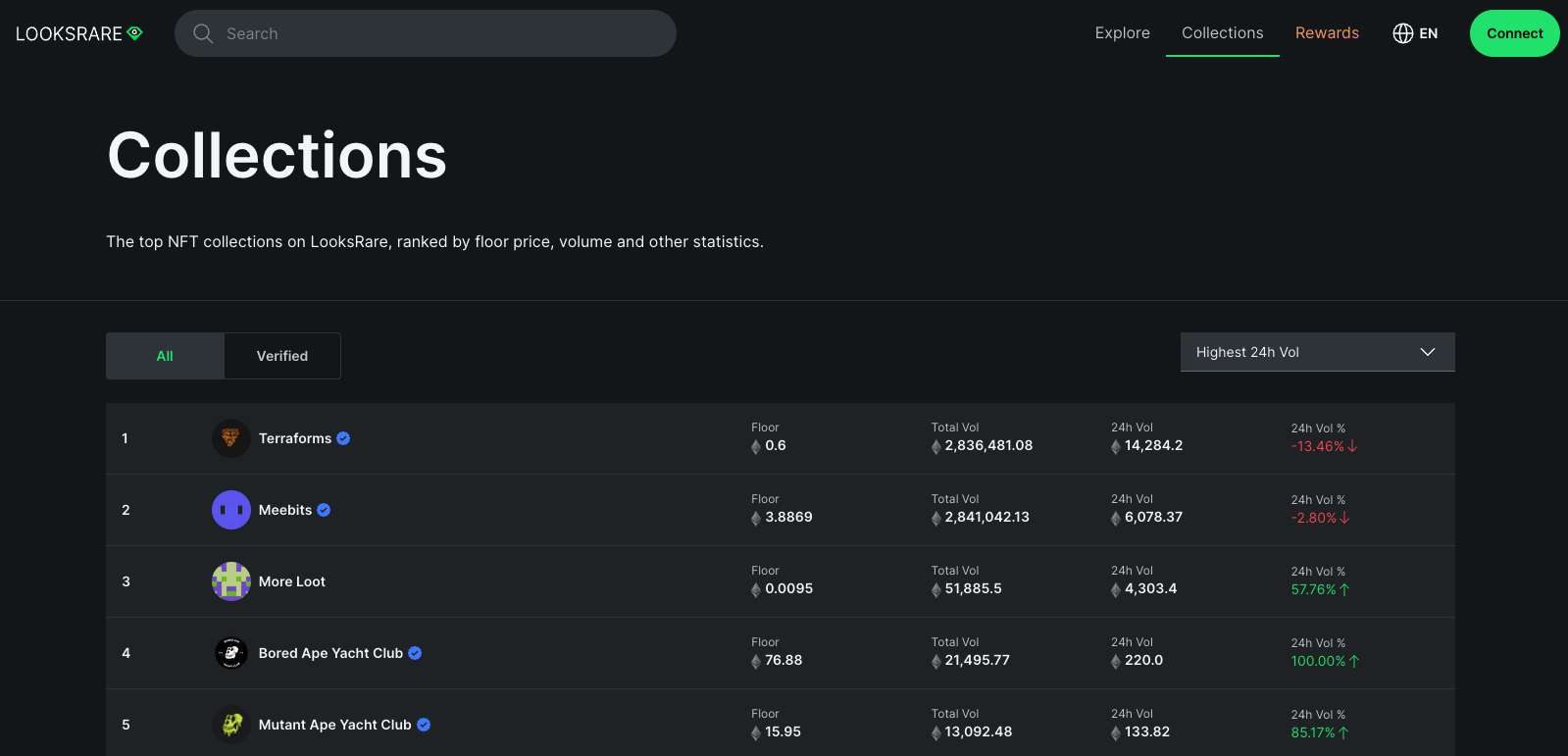
While LooksRare daily trading volume has dropped since launch, it continues to generate significant daily trading volume.
Magic Eden
Magic Eden is the largest NFT marketplace on Solana. According to DappRadar, it currently has a daily trading volume of around three to four million dollars.
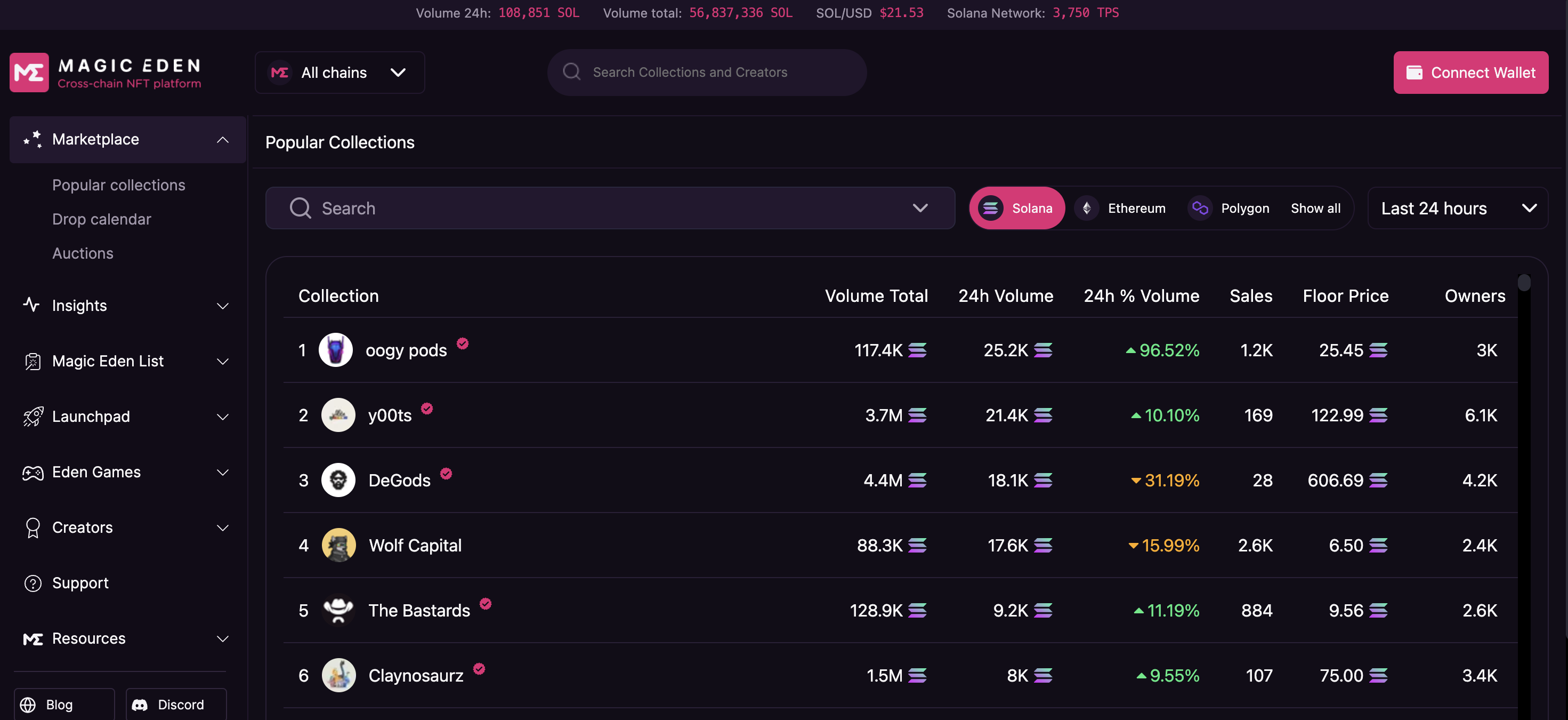
Like all other NFT marketplaces, Magic Eden is free to use. But there’s a 2% service fee on every transaction. You can sign up using a Solana wallet such as Phantom.
Magic Eden is also operational on Ethereum and Polygon.
Tools to explore current NFT collections
X (Twitter)
X (Twitter) is a great resource for user-generated crypto content. It has become the go-to social media platform for NFT collectors to get quick NFT updates in real time.
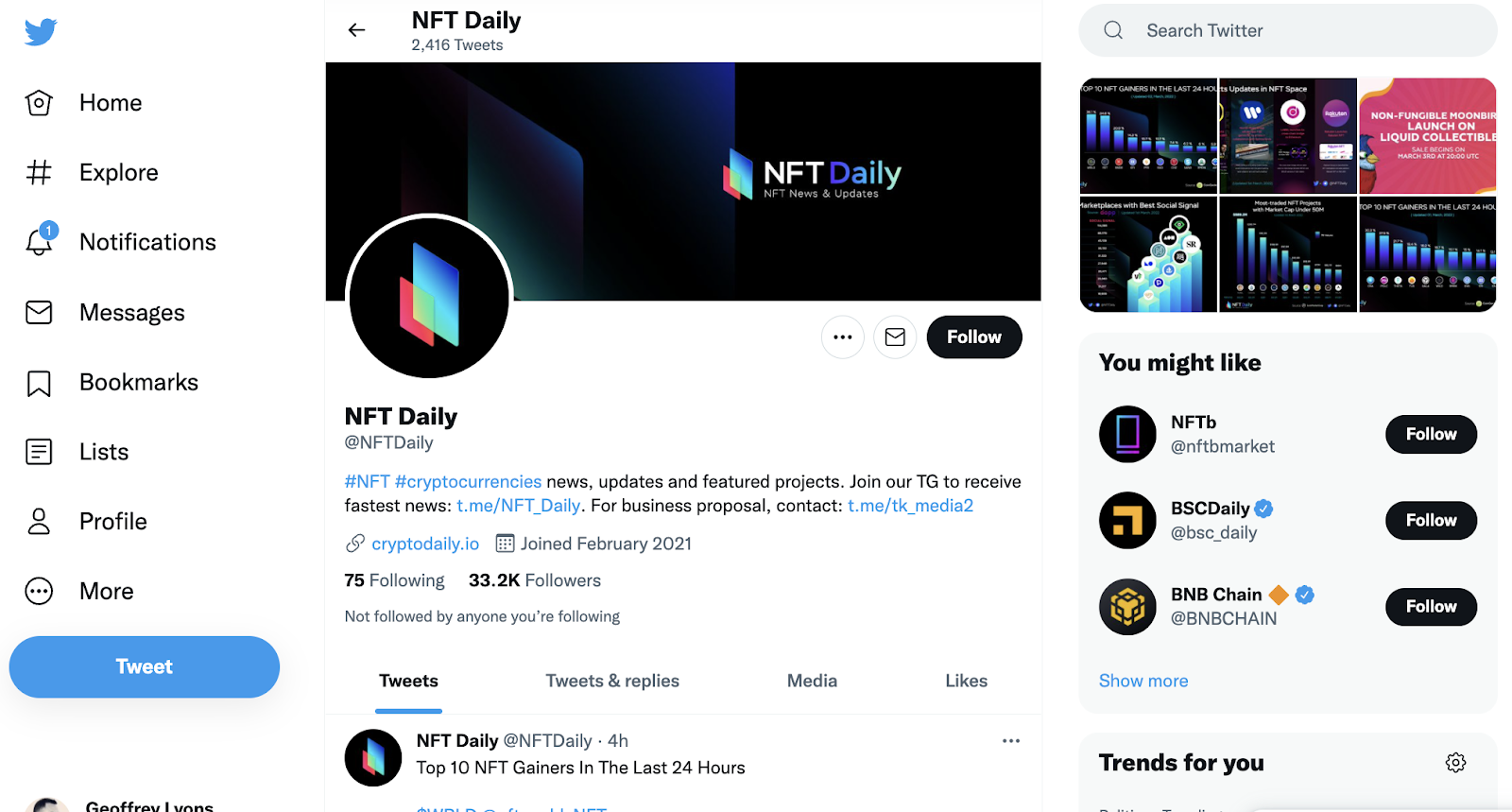
However, you must remain vigilant when using X. It can be difficult to recognize who’s sharing genuine information and who’s trying to scam you.
Accounts such as NFT Daily provide snapshots of some of the most traded projects. Market movers like Gary Vaynerchuk are also a must-follow for big announcements and giveaways.
And with Twitter’s List function, you can group top accounts together to create and customize your own dedicated NFT timeline.
Discord
Discord is the platform of choice for NFT communities to share official links, announcements, and giveaways.
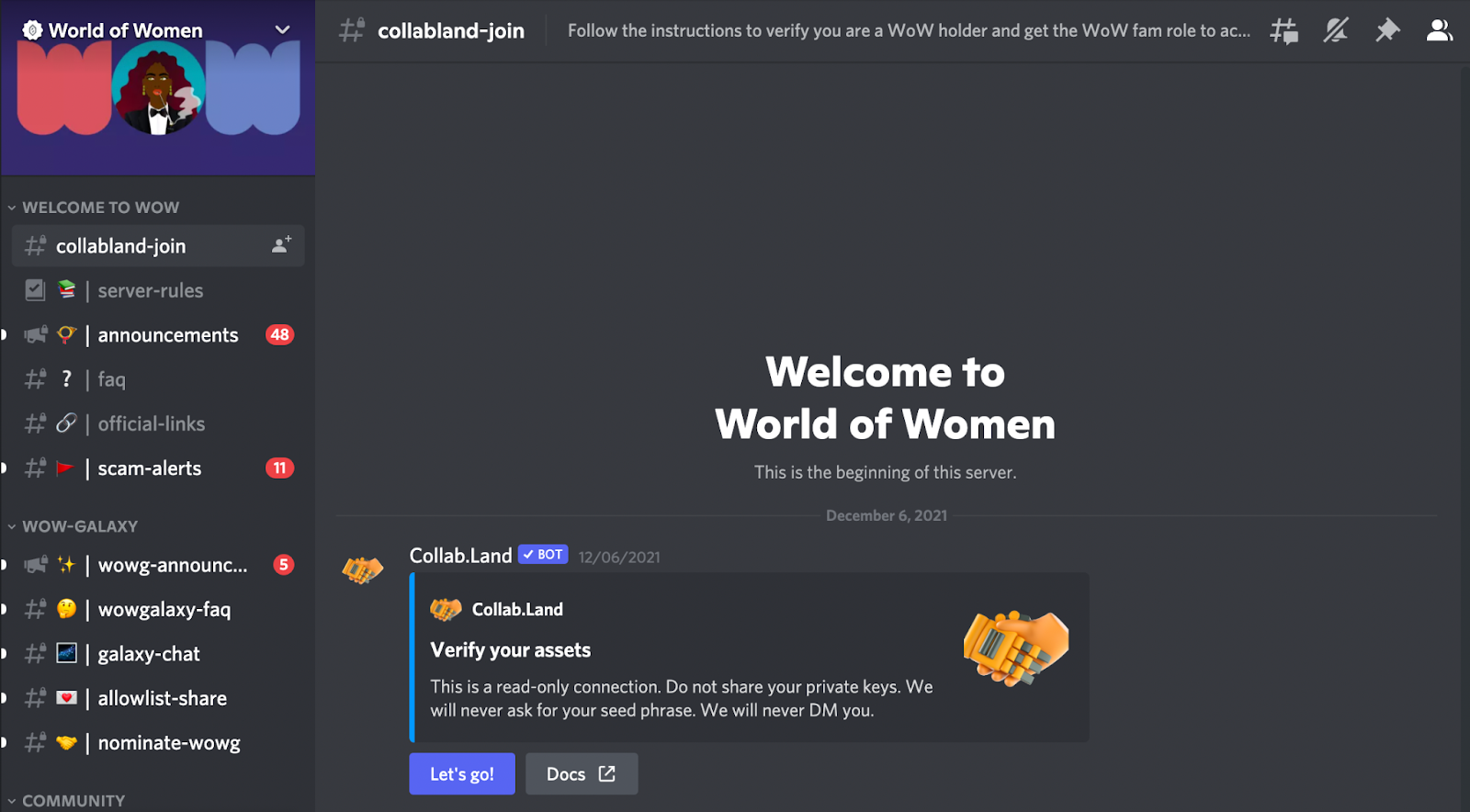
Discord servers of NFT projects are usually open to all, but most NFT collections have channels exclusively for holders as well.
You can use Discord to connect with other NFT holders, participate in real-time discussions about several projects, hunt NFT airdrops, and get involved with a project’s community.
OpenSea
As previously mentioned, OpenSea is the largest NFT marketplace. Aside from trading NFTs, you can also use the platform to analyze a wide range of NFT collections.

You can search NFT collections by filters such as trade volume, floor price, and the number of wallets that hold an NFT from a specific collection. Or you can go to the Top NFTs page and sort through some of the leading projects.
LooksRare
LooksRare is a great place to browse NFT collections and is sure to develop better features as more users migrate to the platform.
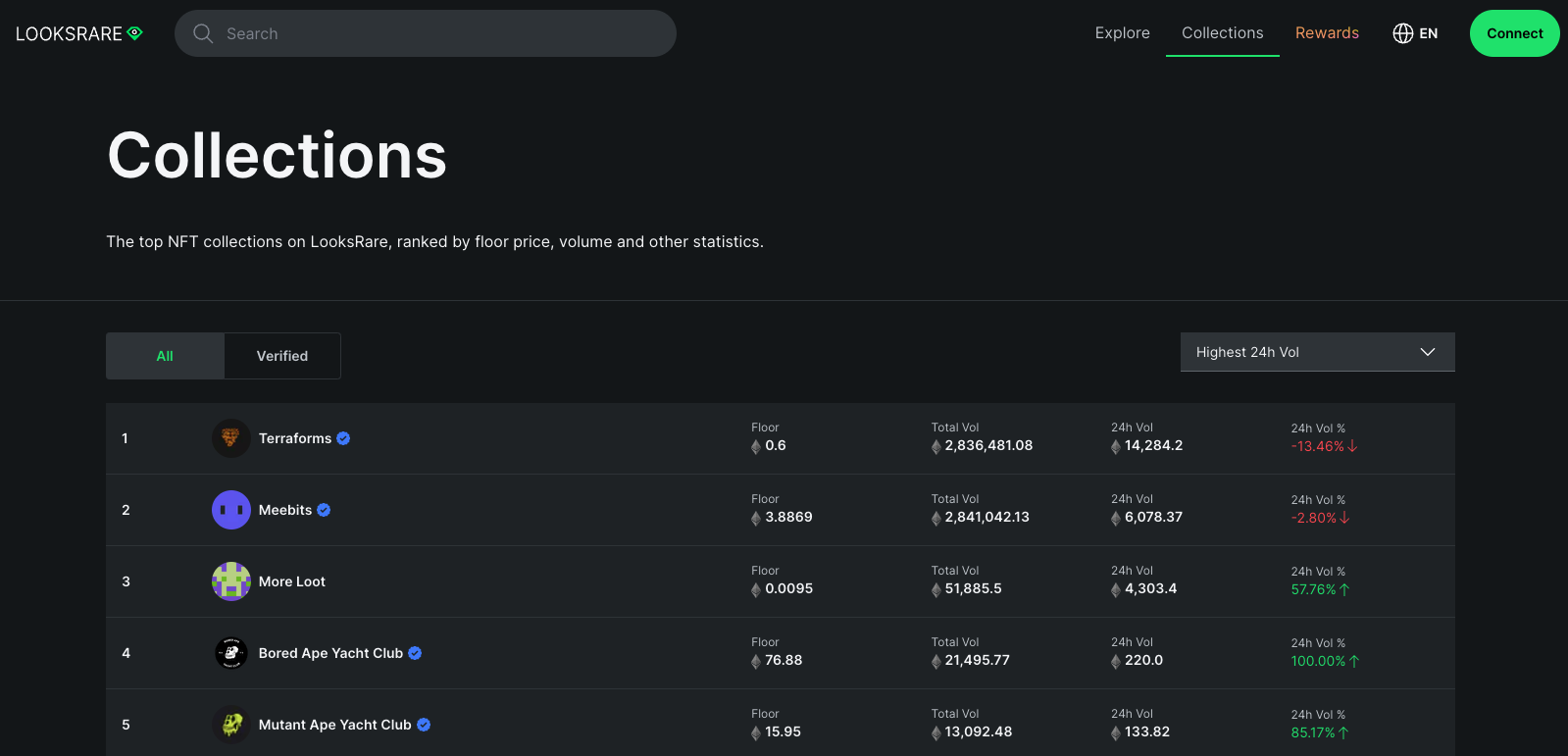
Even if you’re not actively collecting, you can use LooksRare to research NFT collections that interest you.
Magic Eden
Magic Eden is another great place to browse verified listings of Solana-based NFTs. It syncs NFT rankings from MoonRank and HowRare.is, enabling users to check NFT rarity directly on the platform.
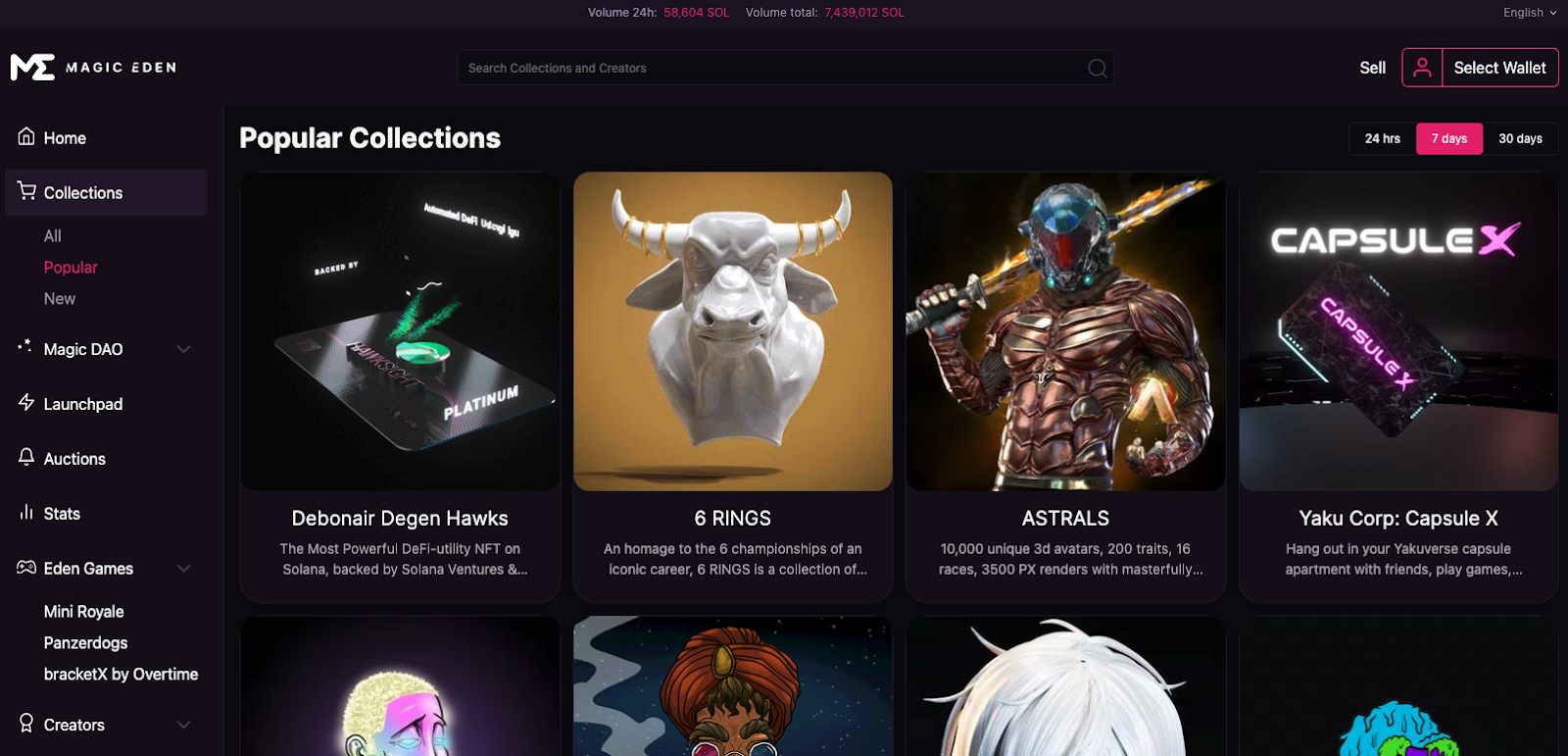
If you purchase a Magic Ticket NFT, you can also join the MagicDAO, a community where you can vote on governance and work directly with the Magic Eden team.
SolSea
SolSea is a marketplace for NFTs on Solana. Its search filters make it highly effective for exploring new collections.
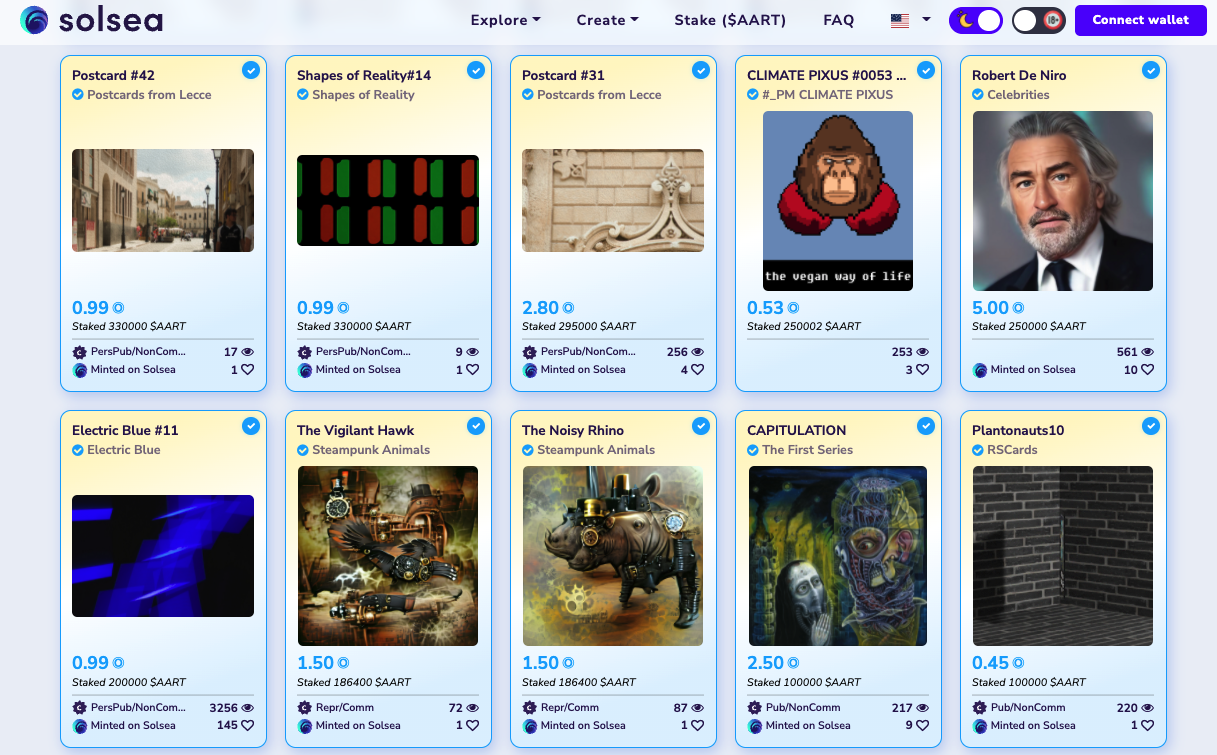
You can filter using a wide range of criteria — NFT format (e.g. PFP, 3D, or video NFTs), price, number of likes and views, and even the type of NFT license, such as a license for non-commercial exploitation.
Tools for minting NFTs
Enjin
Enjin is a great tool that makes NFT minting easy. It is first and foremost a gaming platform, powering popular titles such as Age of Rust and Forest Knight. You can also use Enjin to design NFT collectibles for gameplay.
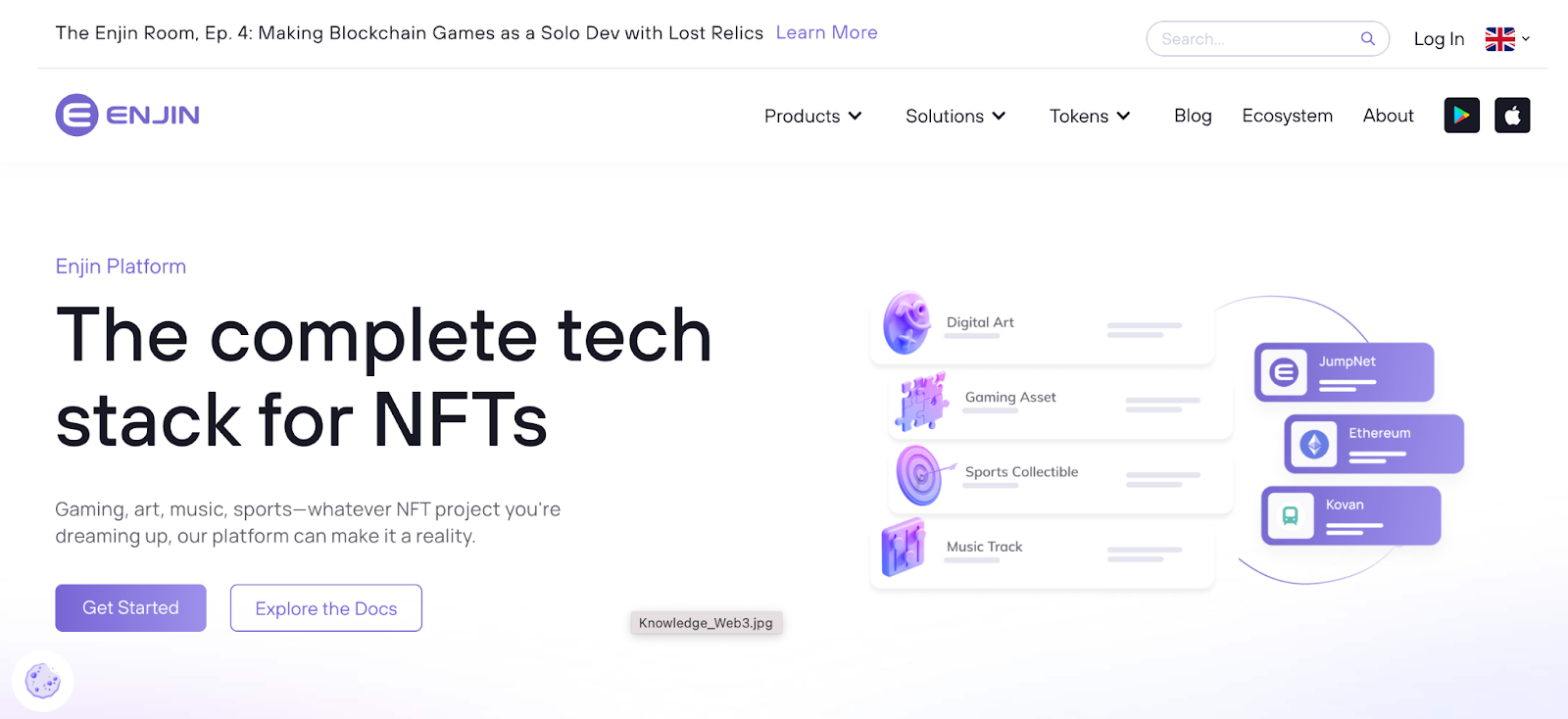
To start, you’ll need an Enjin wallet and some JENJ, Engin’s coin on its Ethereum scaling solution Jumpnet.
Did you know? You can also mint NFTs via MoonPay
Tools to learn about upcoming NFT drops
NFT Calendar
NFTCalendar is one of the most popular resources available to learn about NFT drops on 12 blockchains. The platform lists all future NFT drops in the “upcoming” section.
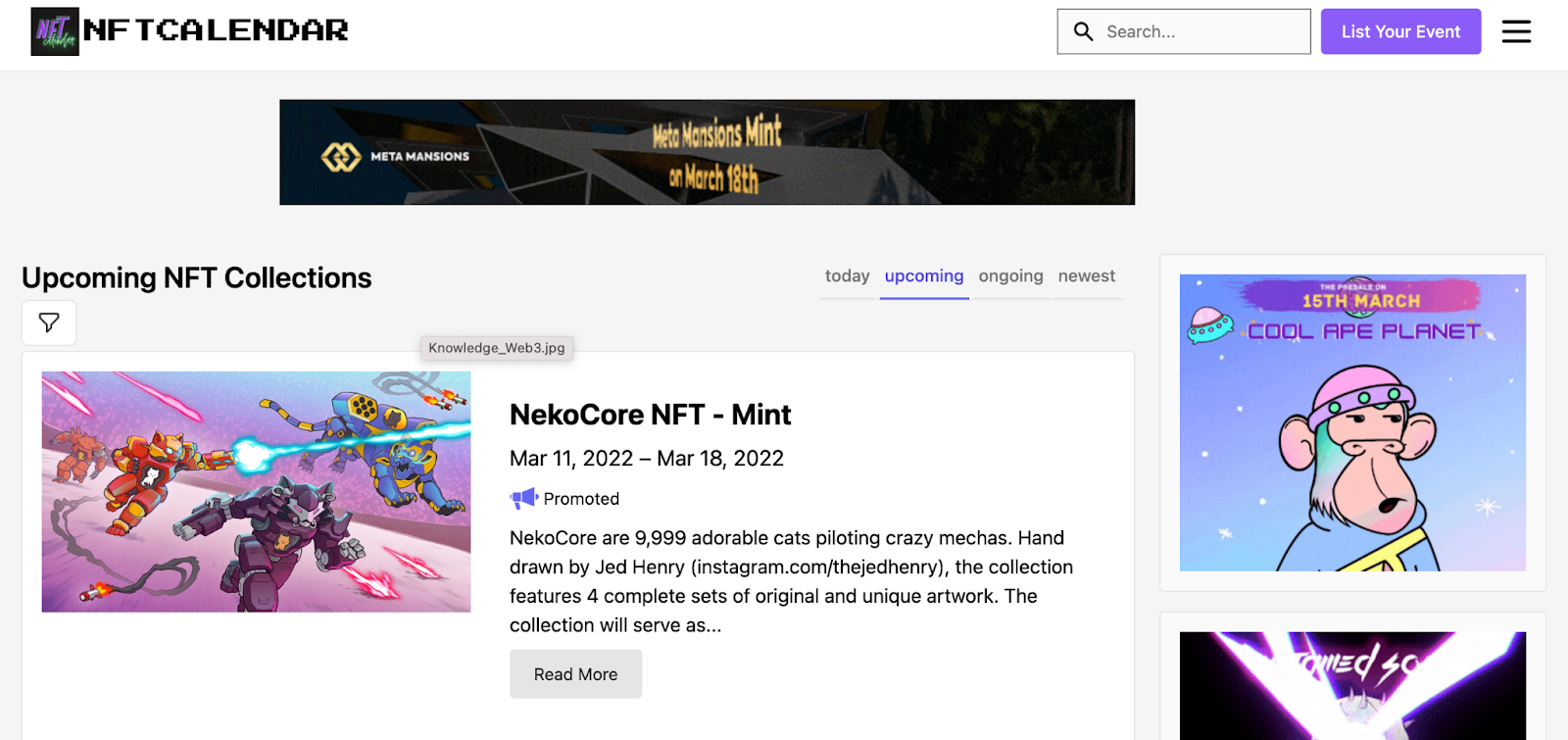
Another section on the website displays all the ongoing NFT drops so you can participate in any that you find interesting.
Known Origin
KnownOrigin, which calls itself an “artist-driven platform”, is host to over 1,000 artists and 11,000 rare digital artworks.
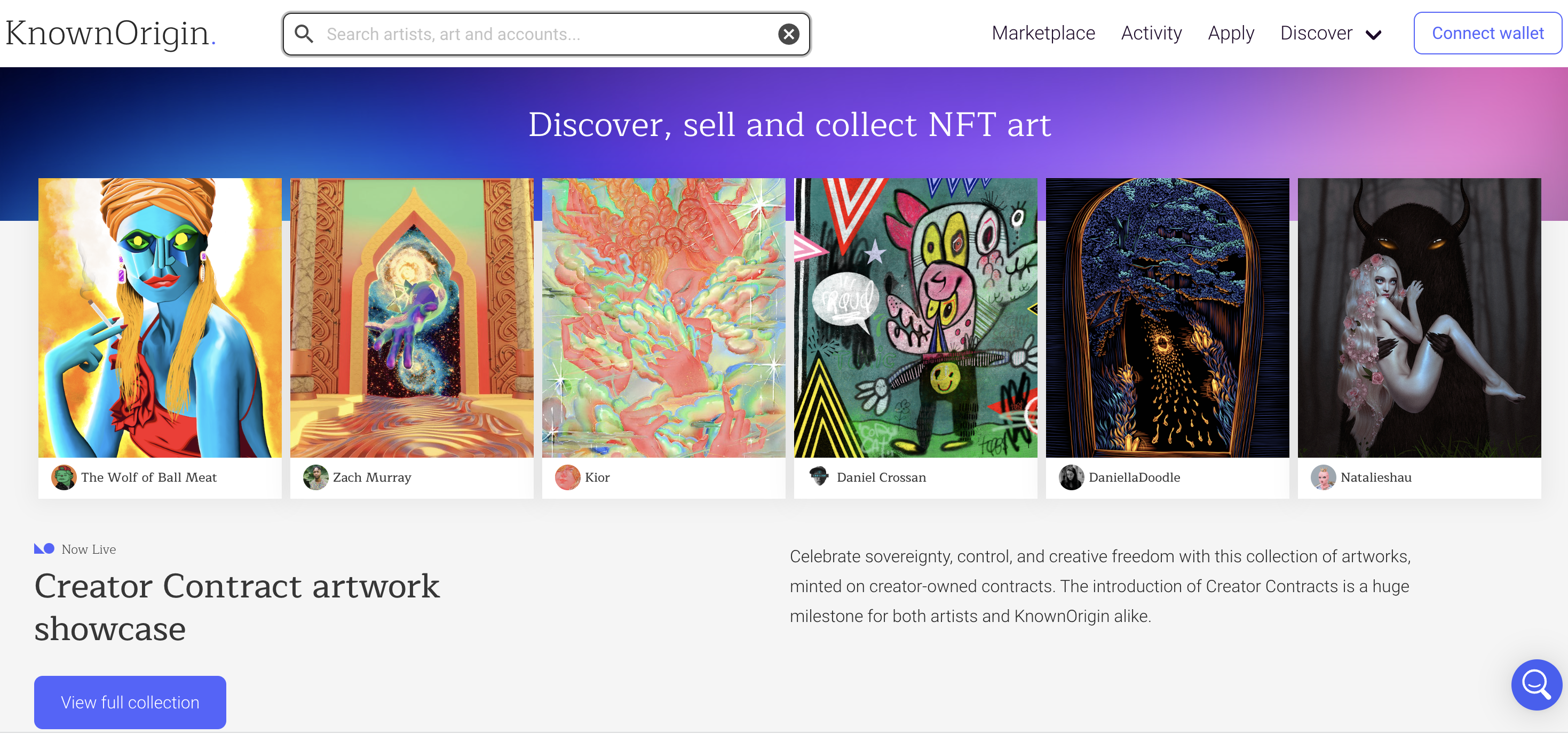
You can learn about KnownOrigin drops by subscribing to its newsletter or browsing the Drops section of its website.
Reddit is a fantastic resource to learn about drops via word of mouth. When browsing Reddit, always be vigilant of potential scams and malicious links, and do in-depth research on mints from projects you discover.
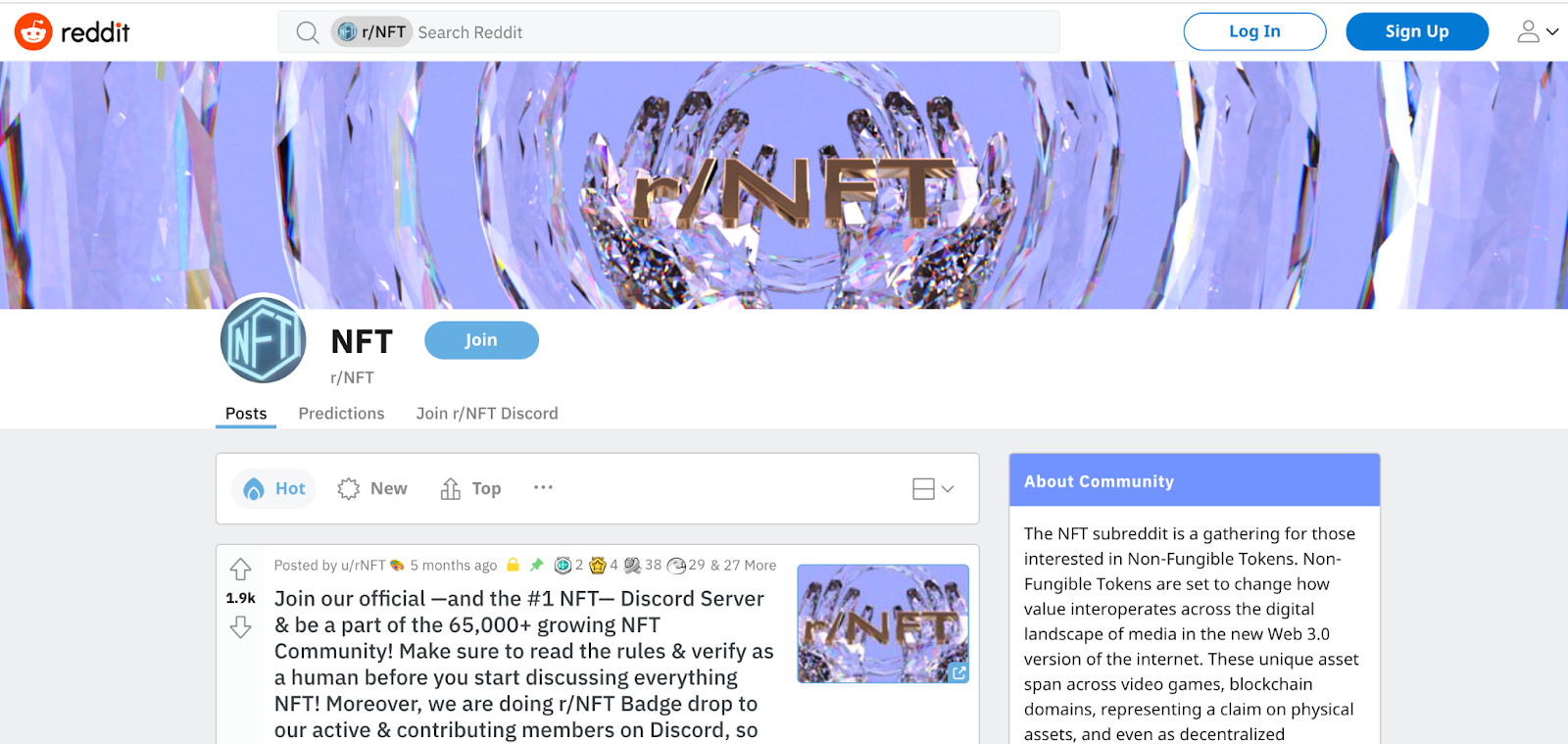
Whether you’re a lurker or someone who actively posts, some good subreddits to bookmark are r/NFT, r/NFTsMarketplace, r/NFTExchange, r/NFTgiveaway, and r/NFTmarket.
Sea Launch
Sea Launch is a platform for NFT drops and pre-sales, which are when early supporters of an NFT collection are given access to the project before it officially launches. The platform features NFTs from Ethereum (ETH), Solana (SOL), Polygon (MATIC), Cardano (ADA), and Binance Smart Chain (BNB).
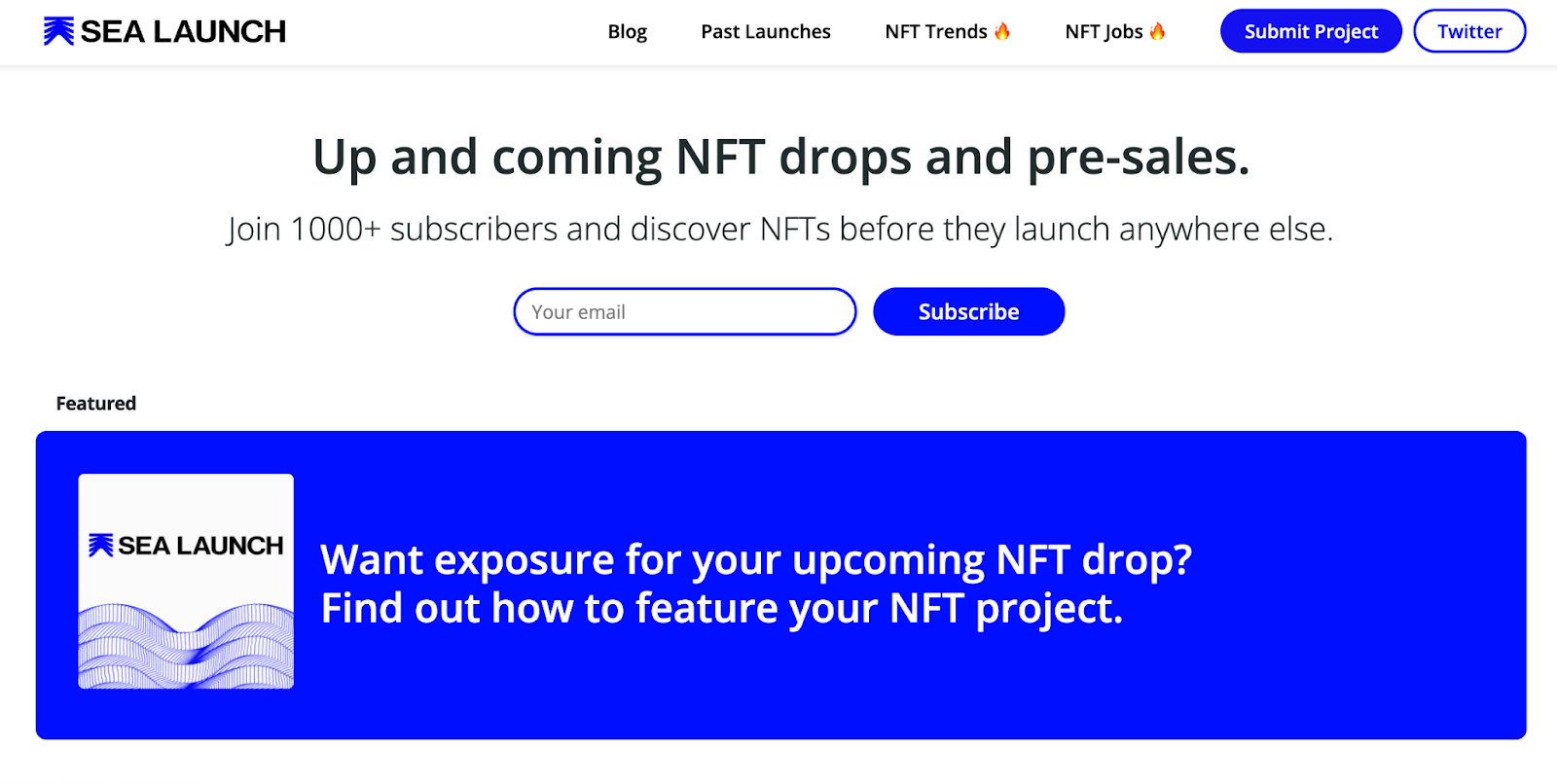
While Sea Launch provides official links to a project’s website, Twitter, and Discord channels, it’s still important to do your own research to avoid being rugged by an NFT project.
To be safe, use a separate minting wallet that contains no more crypto than you need to pay for the mint.
Tools for checking rarity of your NFTs
Rarity Tools
Rarity Tools ranks NFTs by rarity. The way it does this is through a Rarity Score, a basic formula that sidesteps some of the issues that arise when rarity is scored by other means, such as averaging the rarity of an NFT’s traits or multiplying them together.
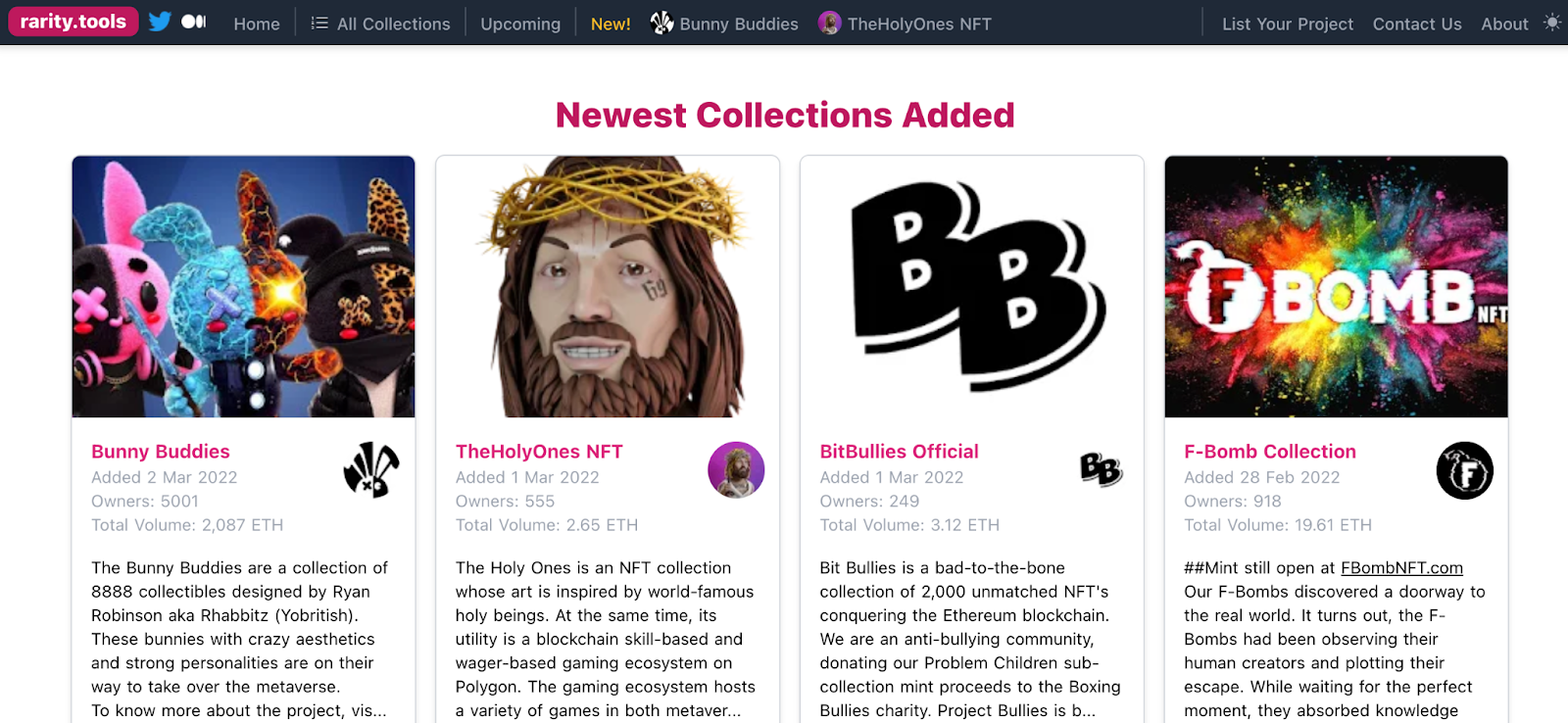
Rarity Tools can be useful for finding undervalued NFTs on secondary marketplaces, as sometimes a user doesn’t know their NFT’s worth and may list it way below its actual value.
Trait Sniper
Trait Sniper, which bills itself as “the fastest NFTs ranking platform”, is built for traders who want to act quickly.
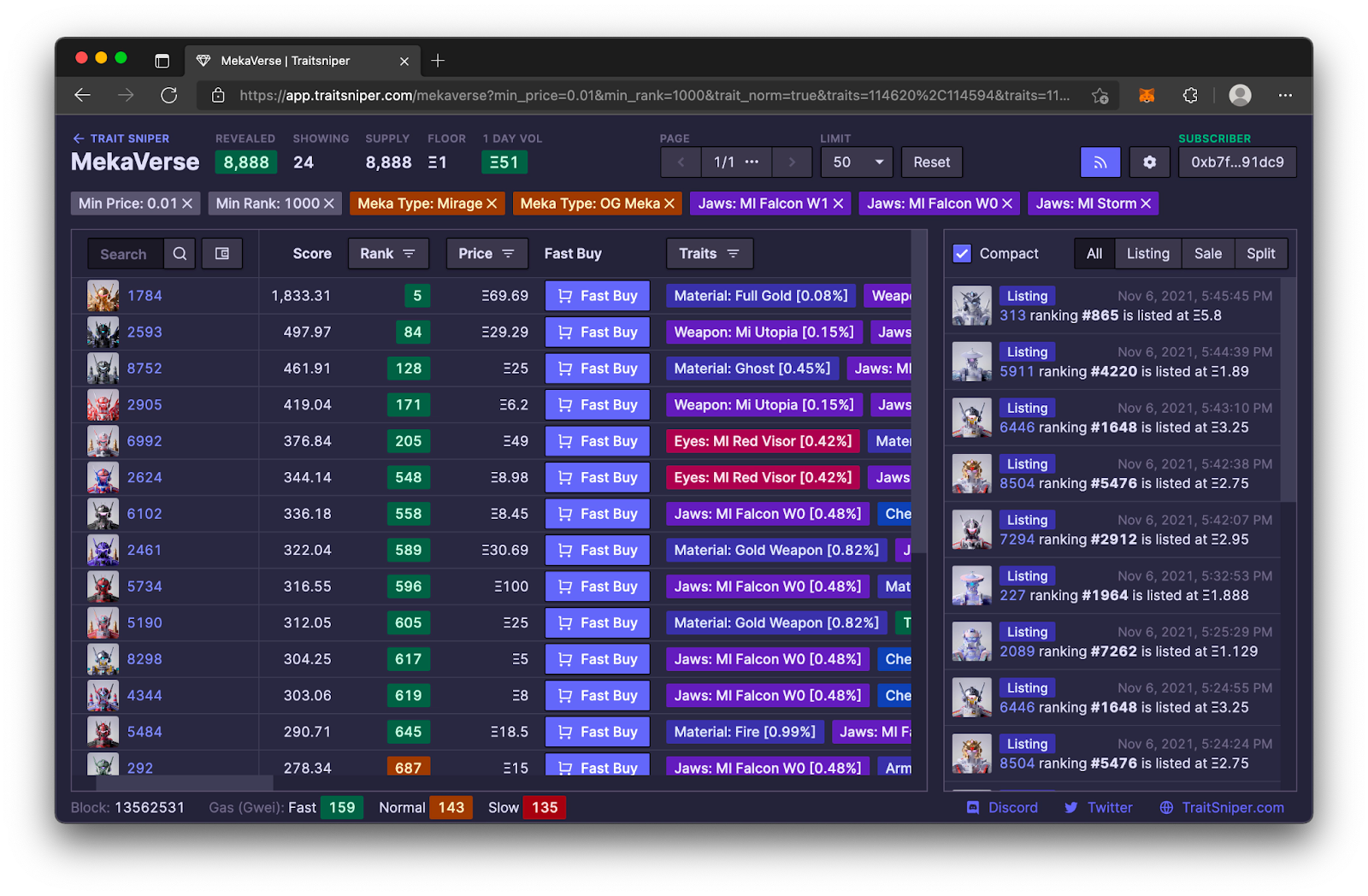
The platform allows you to set custom gas and buy an NFT instantly, so you can “snipe” rare NFTs before anyone else. It’s a great way to take advantage of the fact that some users unwittingly list their NFTs at a bargain value.
Rarity Sniper
Rarity Sniper is one of the most popular NFT rarity calculators. It allows you to check the rarities of 1,970 NFTs listed across Ethereum, Solana, and other blockchains.
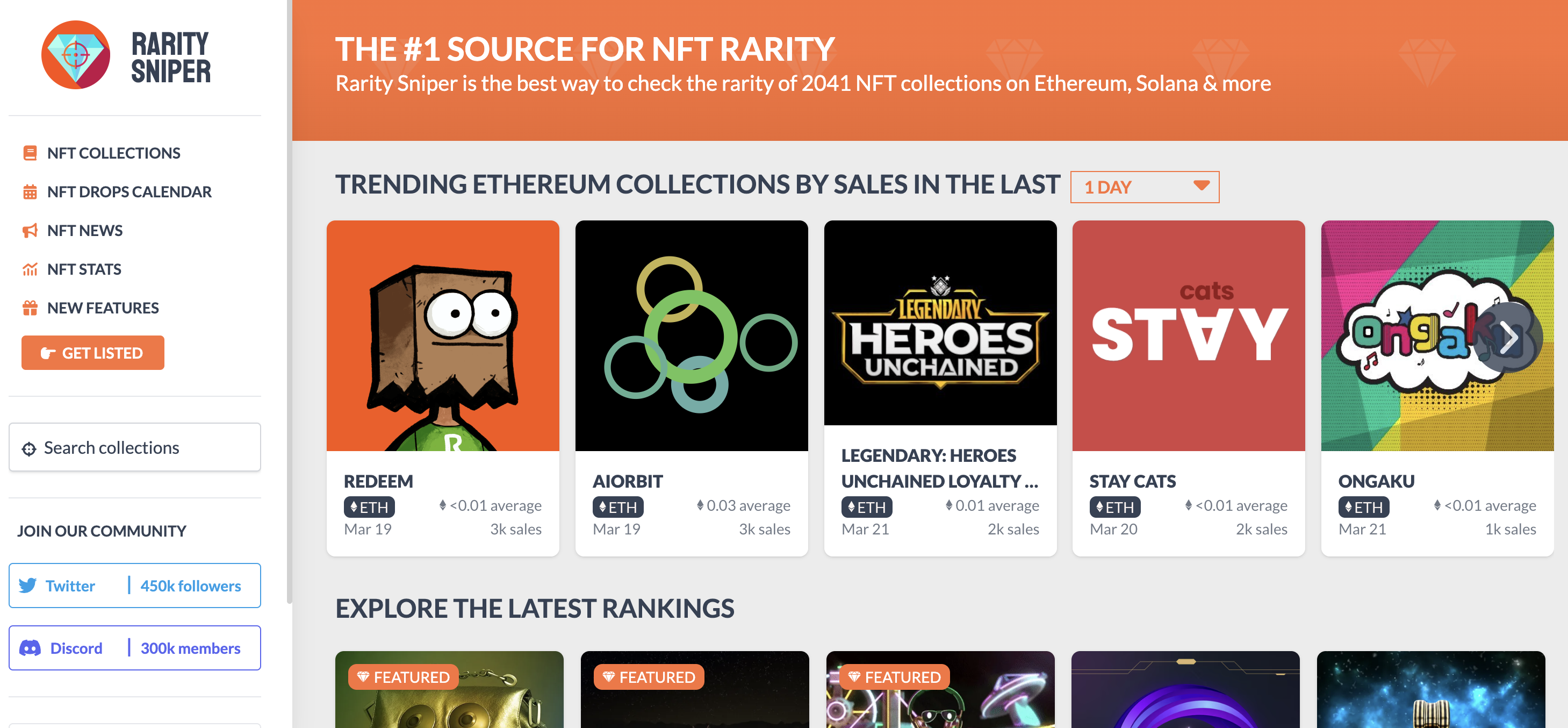
The platform also has other features such as an NFT Drops Calendar, NFT Stats, and NFT News, so you can delve deep into your research.
NFT analytics tools
DappRadar
DappRadar is one of the most reliable analytics tools in the crypto ecosystem. Aside from its use in decentralized application market analytics, it’s highly effective for researching NFT projects listed across 80 NFT marketplaces.

If you want greater functionality, DappRadar also has a premium version, DappRadar PRO, which gives you access to exclusive Discord channels and features like more customized data filtering.
Dune Analytics
Dune Analytics provides snapshots of trends in the NFT ecosystem. Anyone on Dune can create their own dashboard to track metrics for a wide range of NFT platforms and projects.
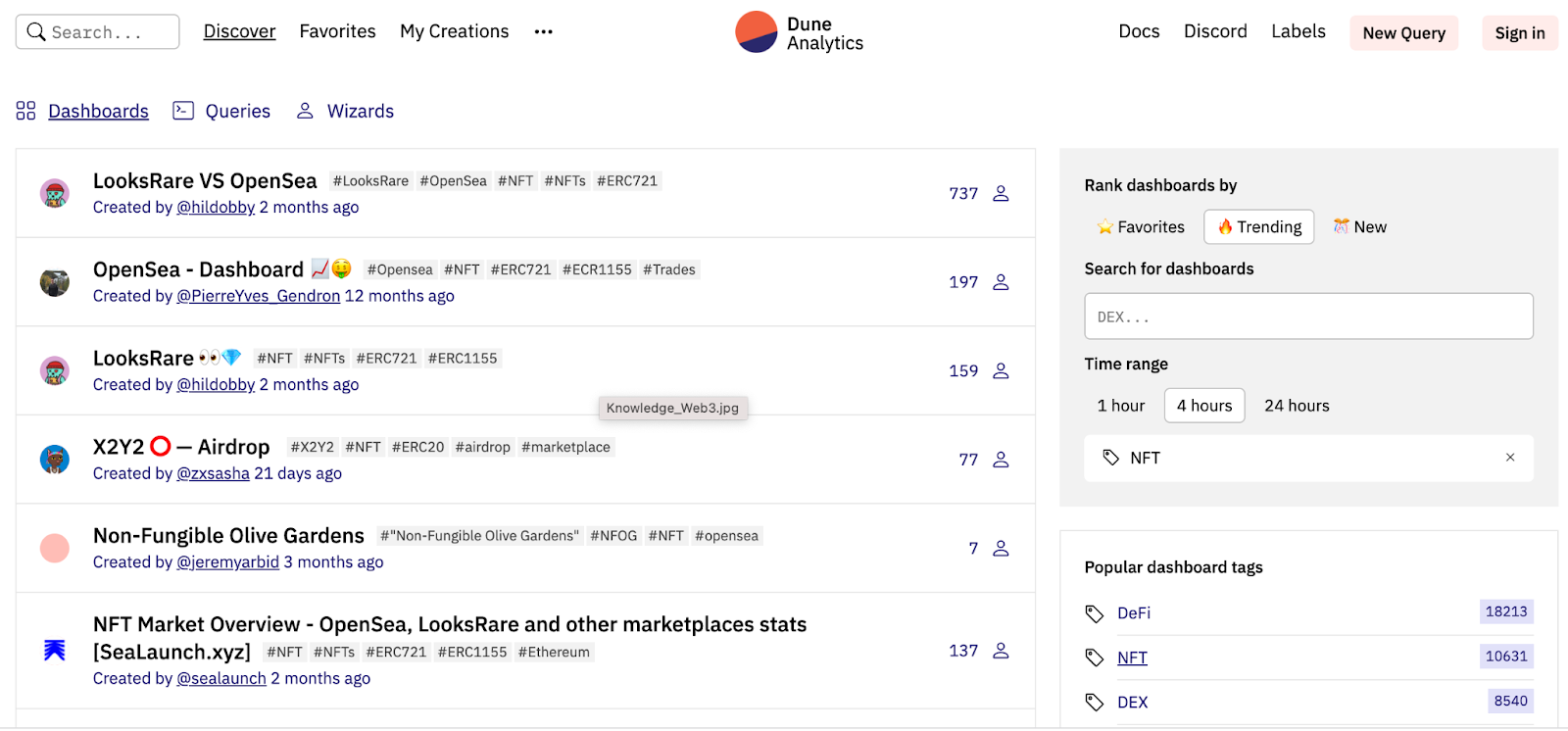
You can also browse dashboards or search for an NFT collection you’re interested in to track its floor price, average sales, and more.
Nansen
Nansen is a blockchain analytics platform that allows you to view volume, floor price, and market cap for top NFT collections.
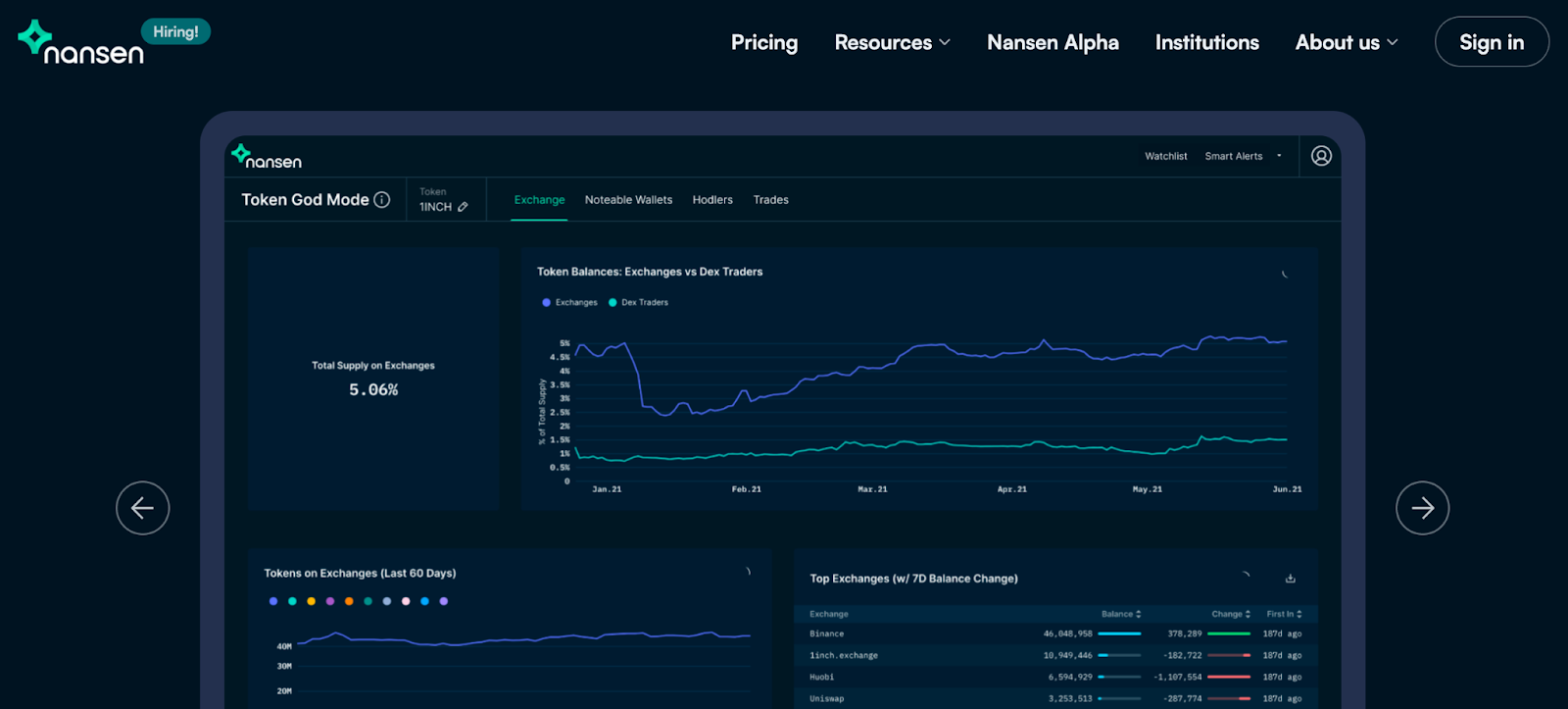
It also lists NFT Indexes (such as the NFT-500) that track the aggregate performance of top NFT collections.
Etherscan
Etherscan is one of the most popular Ethereum block explorers (essentially a blockchain search engine).
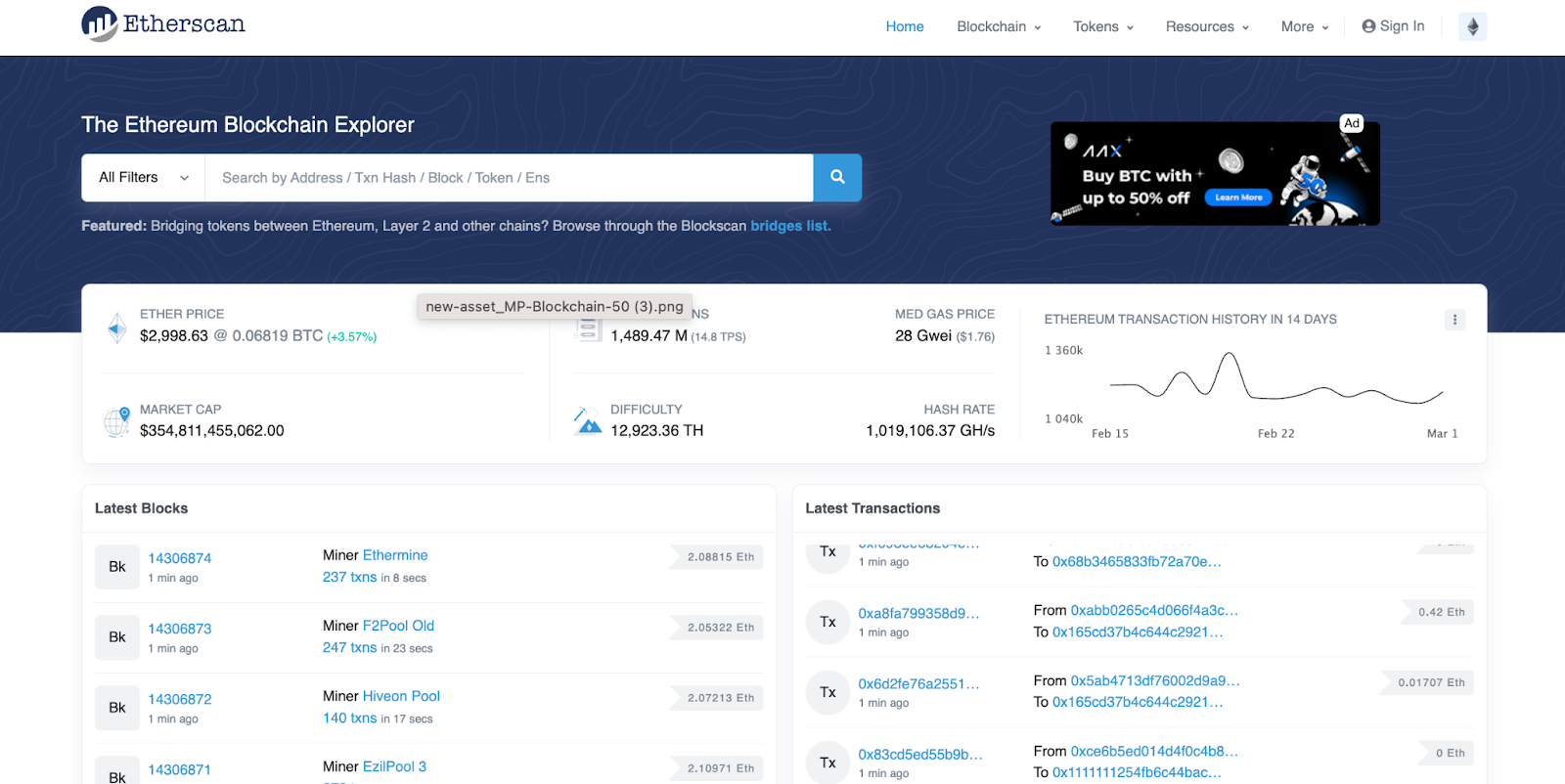
You can use Etherscan to look up raw data on any NFT collection, such as total supply, number of transfers, and the details of all holders and trades.
Tools for staking NFTs
WhenStaking
WhenStaking is an NFT staking platform for NFTs built on Onessus, the studio behind popular play-to-earn games such as HodlGod and NiftyVille. In-game NFT assets can be staked to earn $VOID, the native Onessus token that powers the platform.
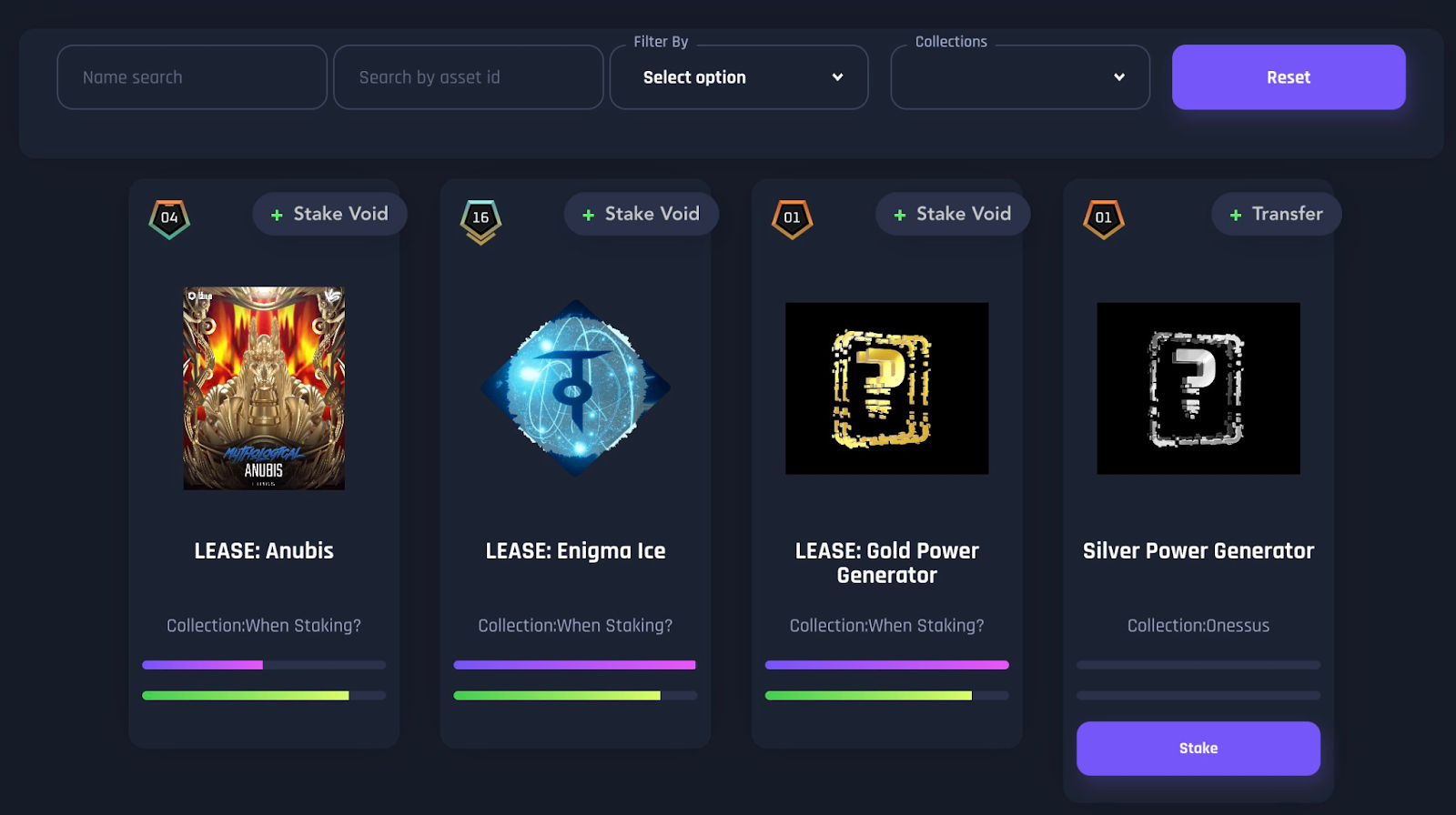
WhenStaking is compatible with WAX Cloud Wallet, the flagship wallet for WAX, one of the most popular blockchains for NFT gaming.
Start your NFT journey with MoonPay
MoonPay is available through some of the most popular NFT marketplaces such as OpenSea.
You can use MoonPay to easily purchase your favorite NFTs using a credit or debit card.

